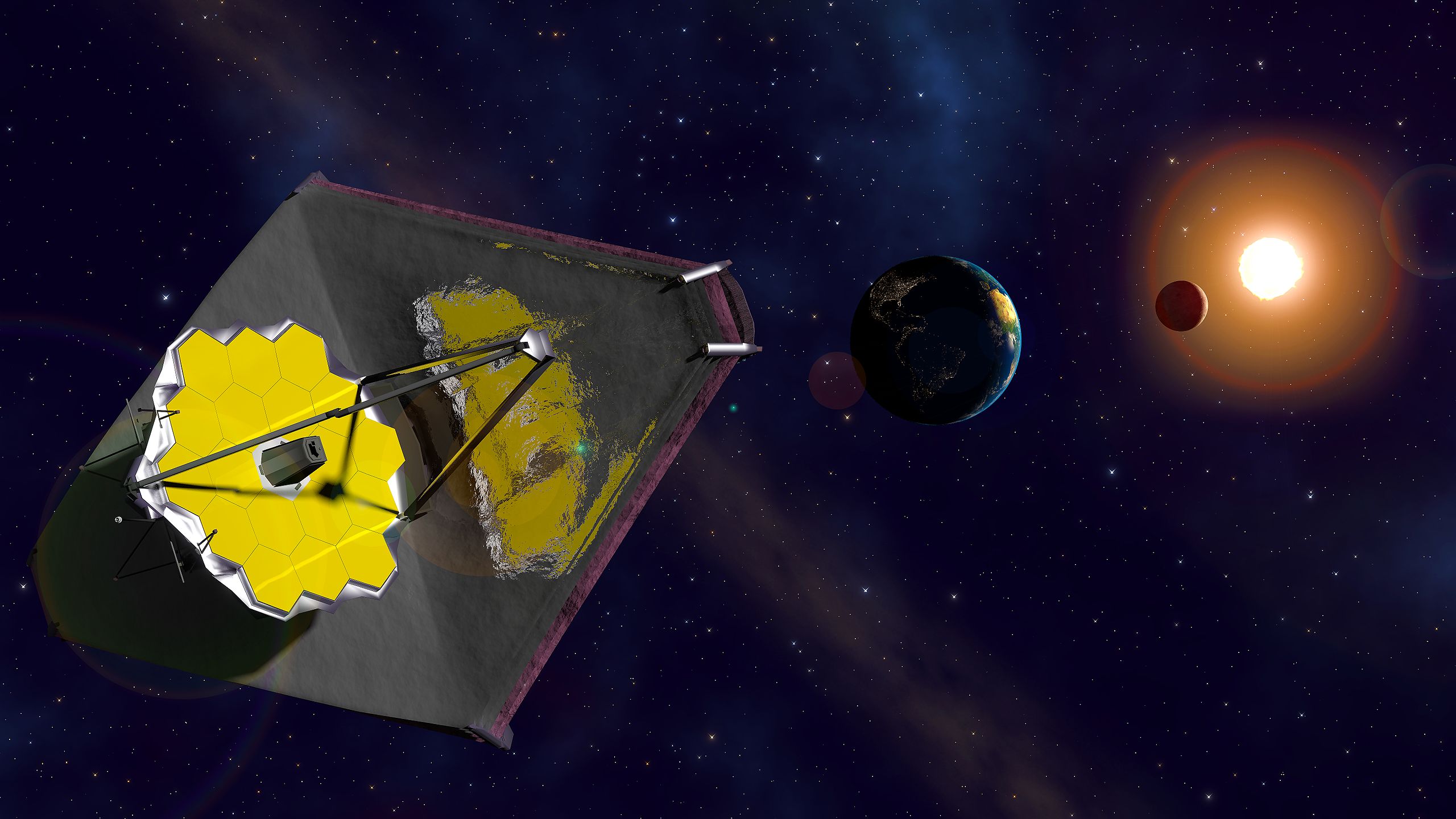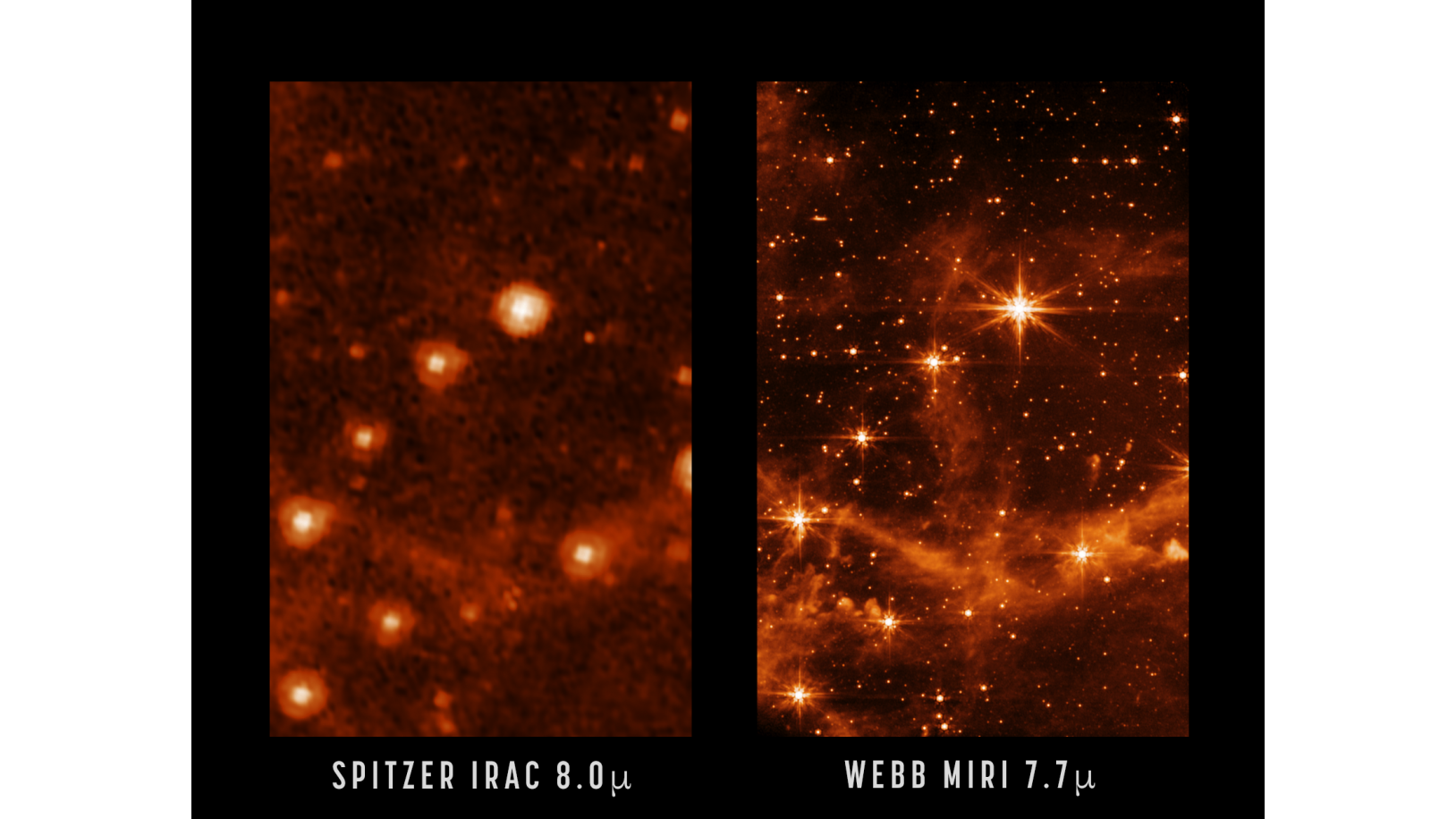James Webb Space Telescope will release its 1st science-quality images July 12
It will be the day we've all been waiting for.

We now have a date for our first real images from NASA's next-generation observatory.
Following half a year of commissioning in space, NASA will release the first operational images taken by the $10 billion James Webb Space Telescope on July 12, according to an agency statement posted Wednesday (June 1). While Webb officials are still keeping those first imaging targets secret, the agency emphasized that it took five years of work among the several participating space agencies to decide what those first images will show.
"Our goals for Webb's first images and data are both to showcase the telescope's powerful instruments and to preview the science mission to come," astronomer Klaus Pontoppidan, Webb project scientist at the Space Telescope Science Institute, said in the statement. "They are sure to deliver a long-awaited 'wow' for astronomers and the public."
Live updates: NASA's James Webb Space Telescope mission
Related: How the James Webb Space Telescope works in pictures
Although the Webb team has shared several images already, these were all interim alignment images taken to evaluate the observatory's capabilities. The July 12 images will come after each instrument is "calibrated, tested, and given the green light by its science and engineering team," according to NASA.
NASA emphasized that despite all the months of careful alignment since the Dec. 25, 2021, launch of Webb, it is difficult to predict exactly how the new images will look. The high-resolution infrared view of the universe will be unique, as Webb operates in deep space and has an 18-segment hexagonal mirror that collects sharp images expected to show the first galaxies, early in the history of the universe.
The new images will be available in full color and will be meant to show the breadth of Webb's science capabilities, NASA said. This means the images will not only be included, but also spectroscopic data to show elemental composition and other information that astronomers can infer from the spectrum of light.
Get the Space.com Newsletter
Breaking space news, the latest updates on rocket launches, skywatching events and more!
"The first images package of materials will highlight the science themes that inspired the mission and will be the focus of its work: the early universe, the evolution of galaxies through time, the lifecycle of stars, and other worlds," NASA said. "All of Webb's commissioning data — the data taken while aligning the telescope and preparing the instruments — will also be made publicly available."

While we wait for the big reveal, we do know what Webb will focus on in its first year of operations, called Cycle 1. The agency has already published the list of planned investigations following a competition within the science community to determine the highest-priority work, a process that will repeat each year of the observatory's lifetime.
“As we near the end of preparing the observatory for science, we are on the precipice of an incredibly exciting period of discovery about our universe," Eric Smith, Webb program scientist at NASA, said in the statement. "These images will be the culmination of decades of dedication, talent, and dreams — but they will also be just the beginning."
Follow Elizabeth Howell on Twitter @howellspace. Follow us on Twitter @Spacedotcom and on Facebook.
Join our Space Forums to keep talking space on the latest missions, night sky and more! And if you have a news tip, correction or comment, let us know at: community@space.com.

Elizabeth Howell (she/her), Ph.D., was a staff writer in the spaceflight channel between 2022 and 2024 specializing in Canadian space news. She was contributing writer for Space.com for 10 years from 2012 to 2024. Elizabeth's reporting includes multiple exclusives with the White House, leading world coverage about a lost-and-found space tomato on the International Space Station, witnessing five human spaceflight launches on two continents, flying parabolic, working inside a spacesuit, and participating in a simulated Mars mission. Her latest book, "Why Am I Taller?" (ECW Press, 2022) is co-written with astronaut Dave Williams.









